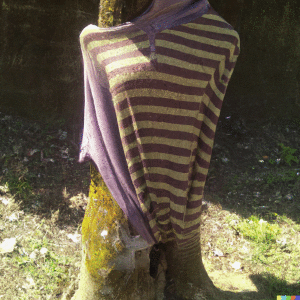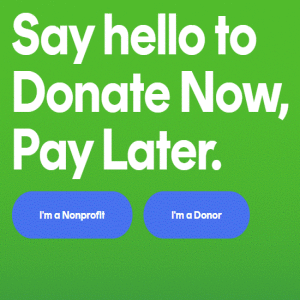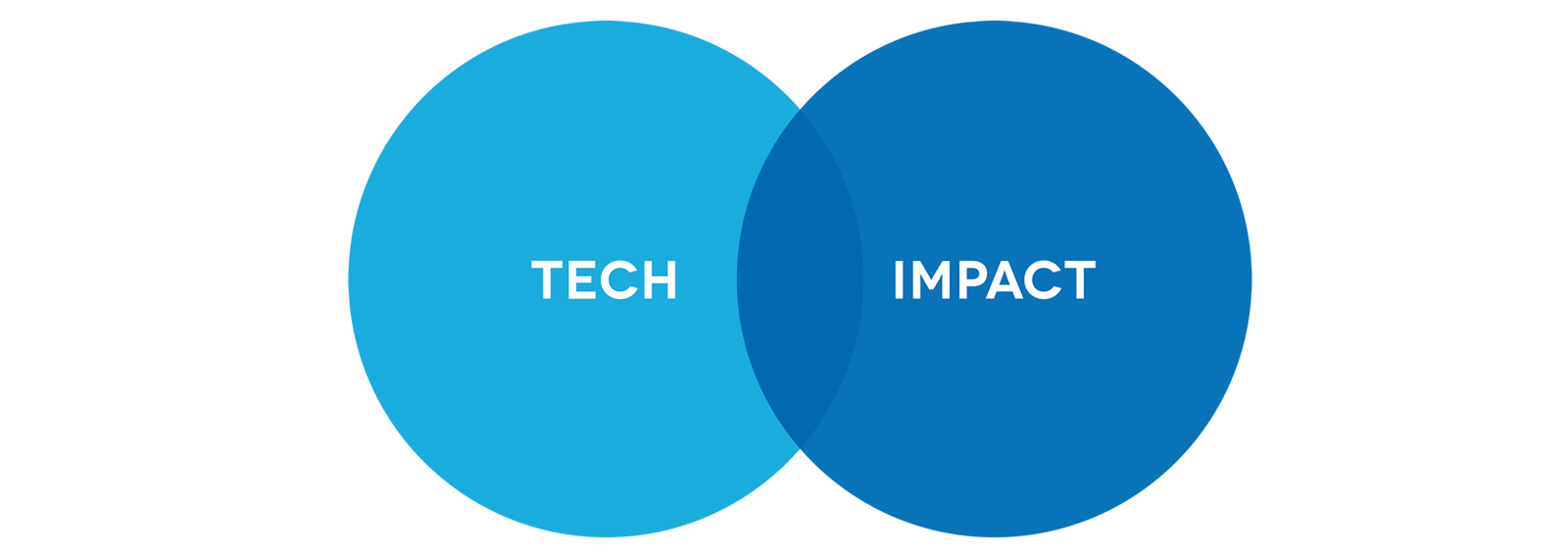Episodes

Tuesday Sep 27, 2022
Nonprofits Respond To Hurricane In Puerto Rico (news)
Tuesday Sep 27, 2022
Tuesday Sep 27, 2022
Nonprofits Respond To Hurricane In Puerto Rico
Puerto Rico felt the brunt of hurricane Fiona last week, shutting power to the island and devastating everything from homes to agriculture as severe flooding uprooted life yet again in communities. Puerto Rico, still recovering from hurricane Maria which landed back in 2017, again finds itself in need of assistance and as yet a path towards a resilient recovery. Nonprofits like New York-based Your Network Caring Community Advocates have already started collecting supplies to aid in recovery, and on-the-ground organizations like the Hispanic Federation are also accepting donations. While digital attention for providing aid to help in the wake of natural disasters spike to highs in the immediate aftermath of an event, the long-tail recovery efforts often require sustained rebuilding that takes years of reinvestment.
Summary:
- Time to Start Making Hospital Executives Vow to 'Do No Harm' | Esquire
- Nonprofits pay Texas farmers to not water crops during drought | The Texas Tribune
- Local nonprofit seeks to reduce America's political divide - News8000.com | WKBT
- Nonprofit organization levels up Concord with 'Donkey Kong' mural | WMUR Manchester

Wednesday Sep 21, 2022
Pooh & Public Domain Creative Opportunities | MarketingArtfully.com
Wednesday Sep 21, 2022
Wednesday Sep 21, 2022
The copyright on Winnie-the-Pooh by A. A. Milne officially moved into the public domain this year.
What does that actually mean?
How might nonprofit's use public domain characters like this to help tell their story?
Tara Jacobson is the owner of MarketingArtfully.com with over 20 years experience in the marketing industry. She helps us break down what is possible and comes up with creative ways nonprofit causes might use the IP.
Resource links
A lot of websites were shared on this awesome episode, here are the URLs mentioned.
- Creative Commons
- Trademark/Copyright search TESS
- RedBubble.com
- https://creativemarket.com/
- https://morguefile.com/
- https://fiverr.com
- Canva.com
- Openai.com
- Public Domain Story List
- MarketingArtfully.com
- https://artsyfartsylife.com/
About Tara Jacobson
Tara Jacobson is the owner of MarketingArtfully.com with over 20 years experience in the marketing industry which translates into highly successful marketing systems for her “DIY” and entrepreneur clients.
Tara’s strong history in Psychology, Entrepreneurship, and Creativity, combined with her 100 miles per hour, “tell it like it is” personality have earned her the title “The Queen of Marketing Ahhh’s” from her raving fans.
Tara brings a true small and medium sized business perspective to her work. She has talked with over 1,000 small biz owners about their goals, plans and dreams, helping them to grow and make sure that their marketing increases their intended efforts!
Rough Transcript
[00:00:00] George: We have a very interesting guest who is, I'll just say it very brave because she is coming in because I reached out to her completely cold, like completely cold. I'm sitting there looking up information about creative ways of using public domain characters and works and none other than marketing, artfully.com.
[00:00:50] And then I reached out to the owner and Tara Jacobson was nice enough as the owner of marketing, fully marketing artfully com. She has over 20 years experience in the marketing industry, but is, I would say coming at this as an outsider to the nonprofit and social impact industry in her work with over thousands of small and mid-size businesses and in this world.
[00:01:13] Tara, can you tell us maybe a bit more about your work and what.
[00:01:18] Tara: So I started internet marketing and making websites with like dream Weaver and all of that back in the day. Merge two, I was a realtor for a couple of years. That was interesting. And then I owned a marketing company for years and one of the reasons why I got so interested in.
[00:01:37] More so trademark and copyright and later on, interested in public domain is because it's I believe it's $600. You get fined as a business. If you use somebody's copyrighted or trademarked work and it's $10,000, if you do it for a client. So I was like, I have always bought every picture I've ever owned.
[00:02:04] I've always had. Oh shoot. What it was called, where the domain of where you got your things and yeah. You sourced the information and yeah that to me was super important years ago when I was posting things for people, making social media graphics, things like that.
[00:02:23] And I got really interested in it. So we're gonna talk today. I'm gonna give you a little course in all of the D. Terms that are gonna come up. And then I love that we're gonna brainstorm some ways that nonprofits can use 'em the only nonprofit I've ever been involved in was the Colorado house rabbit society.
[00:02:49] I do have a blog post on my website about how to get volunteers, cuz they were really bad at it. And so I did I did write them a blog post on how to get volunteers, but I haven't worked tons with nonprofits, but I've worked with all kinds of businesses over the years, small businesses and medium size SSEs and small business.
[00:03:13] George: Yeah. And I think that's helpful context too, to say, like what's at stake. Why do I care about this on one end? There's the penalty side, which is frankly, not as much fun as the creative, which we'll get to, but I'll just say from personal experience, we had interns writing content at whole whale.
[00:03:32] Seven years ago, I get this email from it's like a take down notice, but also basically we used like a picture of a squirrel with some nuts that somebody just Google. Just Google the image and the content really wasn't used at all. And we got fined. I will say I, I can't officially say, but it is in the thousands of dollars for a picture, an intern put on our website like a decade ago.
[00:03:57] Like it's very real what you're talking about and very painful. So I think your note, I'll just put an exclamation point on. It's worth checking because the algorithms that people have for quickly searching and scanning websites have improved for scanning for this type of copyrighted work, all righty onto you.
[00:04:17] What, and there's
[00:04:18] Tara: so much available for free or a very little money. I'm gonna explain the difference, how you get super free stuff, and then how you get like really tiny money. And to me, tiny money is under $10. Maybe not under $300, I'm talking tiny money. So we're gonna start off by talking about what trademark is.
[00:04:47] So trademark gets talked about a lot and trademark is just the words. So you, so Nike's swoosh. The picture of it is copyrighted because it's an image, but the word just do it is trademarked and you can't use those kind of terms. What you're talking about with the creative and the marketing, and maybe pictures for blogs and maybe pictures for things to sell or images for things to sell.
[00:05:17] Is called copyright because copyright covers artistic things like pictures poems, books, things like that. And things come out of copyright. I looked it up after 70 years. So things before 1924 are in the public domain right now. And something super exciting came into the public domain this year, which was the original poo bear.
[00:05:46] And
[00:05:47] George: all the characters, right? So everything from the mil books are public domain.
[00:05:53] Tara: Yeah. And there's illustrations of P bear and EOR and the hundred acre words and things like that, that people truly have a heartfelt connection to. So if you're talking about doing something that is going to help a nonprofit, you're not looking for something that's going to.
[00:06:16] Be mercenary or something like that. You want something that people can go back to their childhood and think, oh my gosh, it's poo bear. I love poo. And there's a whole list of and you can put a link on it. I have a whole list on my website of stories that are in the public. So Rapunzel, Rapunzel it down.
[00:06:47] Your hair is in the public domain. So that is something that people can use. Oh, we have to talk about public domain too. But that is a story that people can use. What they can't use is tangled. Tangled is the dignified version of. Yeah, Rapunzel, let down my hair. So what you wanna do is you wanna make sure that anything you're looking to use, there's a database.
[00:07:19] It's the PT, PTO database. It's called test T E S S. If you just search test on. Google, they have a way to search for it. And you put in only look for live ones. So if you look for live and dead ones, then you're gonna get a lot. But we only care about the ones that are live right now. And so you can find out if something is in the public domain is a avail, is copyrighted or not.
[00:07:46] Now public domain is way more just than things that have gone on a copyright or that aren't trademarked. There are things called creative commons where an artist or a writer or people like that will take their items and file them as creative commons. Now you want what's called creative commons. Oh zero zero.
[00:08:12] And that means they hold no They don't have any license on it. Where if it's just like a plain creative comments, a lot of times they'll exclude a commercial license, even though you're a nonprofit, if you're selling something commercially, that would be violating the terms of that license. And you can find all kinds of things doing that search for pictures, for your website, for things like that.
[00:08:38] Now there are places that say they. Creative commons things like morgue file has a lot of pictures on it. It's just one of the places. And, but they don't have a vetting process. They rely on the people, uploading the pictures to do it. So we're gonna talk for just a wee minute about why sometimes it's better to purchase it than not.
[00:09:05] Okay. Even if you're using something that's in the public domain. So we're gonna talk about poo. Because I love him and absolutely but you could go, you could grab a book off the shelf. You could download that you could scan that image. You could fix all of the little problems with a graphic.
[00:09:29] Program like Photoshop and make sure it's in the proper condition to use on a t-shirt or use on postcards or things like that. Or you can go to a place like creative market where somebody has already done that for you. Like an artist has already done all those steps. And you buy it with a commercial license.
[00:09:52] Usually they're about $11, I think, to get like a set of P bear images. Alison Wonderland is in the public domain. So you can use Alison Wonderland. Now they have, somebody has trademarked Allison Wonderland on t-shirts. So you still, even if it's in the public domain, you always wanna go check the trademark database.
[00:10:14] It's not, there's no like blanket, these are all safe and these are not all safe. You always wanna go and check. So does,
[00:10:22] George: so the trademark database, what does that look like? Is that tests or is that a different that's test? Yeah, no
[00:10:27] Tara: that's tests and all you do is you put you put in Alison Wonderland in tests and click live and click search, and then it'll show you what category of things are.
[00:10:42] Ex like you have to exclude. So say it says t-shirt clothing. I can't remember what's all in that category, but you could make greeting cards. Nobody's trademarked that for greeting cards. So that's why you wanna check. So even if you think, oh my gosh, Allison wonderlands gone. It doesn't mean it is.
[00:11:04] If you're not using it on the thing, they've trademarked it for. And I have such a good example that I looked up for you. So the word elf. Is trademark for lighters, photography, backdrop, and amplifiers three different categories. You can't use it for that. But as of right now, if you wanted to use it on a t-shirt you be, it's not just the, you're gonna put a picture of an L on a t-shirt and you're and for nonprofits, you may be able to avoid some of these problems, because you're functionally selling. to your constituents rather than as much trying to sell internationally. Sometimes you may wanna sell internationally, but if you're doing a fundraiser internally and you're not gonna be advertising it online or in a huge way, then you may be able to get away with it.
[00:12:08] If they do send you a cease desist, then you have made commercial money on it though they can claw back that money. So it's worth looking.
[00:12:16] George: Yeah this complicates it a bit more because prior to even you saying that, I just assumed if it's in the public domain, I'm looking at a picture of Winnie the poo.
[00:12:26] Somebody could have trademarked that on a t-shirt. So I'm like, oh, I can spin up my t-shirts with Winnie the poo on it.
[00:12:32] Tara: No, they can't trademark the picture of Winnie the poo they could tra they could, and they can't copyright it because the copyright belongs to AA. So Uhuh, the original artwork is in the public domain.
[00:12:49] What they could do is, and it would take 'em a while to do it, cuz they have to show the first time the trademark, the word was used in the public and then they have to pay money to get it. It's about 12, $1,200 to get the trademark and then they have to go through a whole process where it's vet. So you and they won't go backwards. So if you were to sell a Winnie, the POH says, Winnie the poo, it's the poo bear old P bear you're done. And in two years, somebody trademarks Winnie the poo and you had used it. They don't go backwards. Does that
[00:13:26] George: help at all? You know what it helps with reminding folks that just because it's on that list, you should double check the database, especially if you're going to put marketing power behind it, putting it on products and as you go to use it, but.
[00:13:40] Again, though, is a massive shopping list because there are some edge cases maybe you can't put poo on a lighter, but
[00:13:50] Tara: no, you can't put, you can't put an El on a lighter
[00:13:53] George: I know let's get your, let's get it straight. Elves, not okay. Poo, like we'll just memorize whole thing. Poo's good. He's good to go on a lighter.
[00:14:00] There's that huge the movie's coming out, right? They did a horror movie with Winnie the. Can drop this season because you can do
[00:14:12] Tara: that. You can do that now. And so all of these amazing things that people, and it's not even just, so Walt Disney was brilliant. He took over so many fairy tales.
[00:14:31] Yeah. And stole them for him. There is a real beauty and the beast story that is an old fable from like, When the black plague was around that he then made specific. Now you can do all kinds of things with beauty and the beast. You just can't do the bell in the yellow there iconography, right?
[00:14:58] Yeah. Okay. And then spec. So that's from both the old movie and the new movie, and then you can't do, and then you can, but there's so many things you can do. Like sleeping. Beauty is you can say sleeping beauty. He doesn't own sleeping beauty. He owns Aurora because that wasn't the name of the original sleeping beauty.
[00:15:22] It was. Sister. And so he picked that one. So then you wanna really try, I do know a lot about this. You wanna try to make sure that something isn't copyrighted or trademarked before you use it and just BEC and do not go to Etsy, do not go to anywhere and do a search and think, oh, look, this is all over Etsy.
[00:15:46] It must be okay. That's not how the world works.
[00:15:50] George: Yeah, you're really talking about the original, like name of the character as presented essentially in the trademark language, in the copyright public domain and the images I'm looking through your piece on Allison Wonderland. You may have that image of Allison, a blue dress and the the mad hat, or it is a very different look, frankly, but it's still recognizable as the charact.
[00:16:16] but it doesn't necessarily have that immediate brand recognition that essentially that's a Disney version Disney, it Disney it. But right now, for instance there's two movies about pinoc one on, I think Netflix and one on Disney as a rerelease guess what, that's another story similar to, as you just mentioned beauty and the beast that you
[00:16:35] Tara: can run with.
[00:16:36] Yeah, there are so many things. And oh and they're really mad about this, but I think in the next year it might be next year, Nikki's coming
[00:16:45] George: to town.
[00:16:47] Tara: Old Mickey, like really old Mickey. Oh, G Mickey. Yeah. OG Mickey is coming out of copyright. And so that's, what's fun about it to me. Like I, I make stuff for now I make artwork.
[00:17:03] I'm an artist now. And I make artwork. So I made my own version of the mad hatch actress who does not look like Johnny Depp. It doesn't look like Disney's version. She's a woman in a hat and the original Alison Wonderland had that 10 and 10, six thing in her hat. And so she's very recognizable as Alison Wonderland, as the Matt had her from Allison Wonderland, but she's a feminist version.
[00:17:41] George: So now we get into maybe some of that creative elements, unless there's some more guardrails you wanna toss
[00:17:45] Tara: out for folks. Nope. I think if you've gotten this far and you have all of the warnings
[00:17:51] George: you really made them take their vegetables first, right? Amen. Vegetables and vitamins first. So you can riff on them.
[00:18:00] You can take this original concept and riff on it. Can I just maybe up to a thou 3000. Explain to me what are the advantages of using a character that has this recognition
[00:18:14] Tara: already? Okay. So the reason why there is copyright and trademark is because it would be so much easier to sell a Alison Wonderland.
[00:18:30] Queen of hearts mug. If it looked just like Disney's right, people have already paid money to go to the Disney movie. They've already paid to go to Disney world. Walt Disney has already done the work to make people want to like that. And so it's unfair if you think, oh, I wanna do something with transformers because there's good brand recognition.
[00:18:58] The reason why you wanna do it is because there's good brand recognition right now. The reason we now I wanna I'll give you my Madha example. The reason I wanna do a Madris is I can use all the words except for Alice in wonder. So mad Hatter, isn't trademarked tea party. We are all mad here.
[00:19:23] All of those things are not trademarked, so I can make a mad Hatter shirt with we're all mad here and I can market it in a way that it will be able to get found by a portion of the population that's interested in the Alice Wonderland story. That's why I wanna make a bad hatch actress, because I know that there are people that already resonate with that character, whether it was the Disney character or whether they read Allison Wonderland in their childhood, or whether they saw Johnny DEP any which way they have a feeling towards that character.
[00:20:00] And I can use that to help sell my stuff.
[00:20:04] George: Gotcha. So you're shopping for. These characters in part because of this. And I wanna come back to the value that you are essentially borrowing for free. Think about the amount of attention it took to bring that character to millions of people. How much would that have cost for you to do the same?
[00:20:24] Now you then, because of that attention, as I understand it, there's recognition. Oh, I see that. I grew up with that. I was read that. And then with recognition, you then can play with the affinity, which by the way, can be positive and negative. There are often villains in here as well, but you then can immediately start on page five instead of page one.
[00:20:45] And then it sounds add your flavor of brand message, even advocacy. Does that sound right?
[00:20:53] Tara: Yeah. Exactly. So gimme an idea of one of your nonprofits.
[00:20:58] George: Oh gosh. We have a lot of animal welfare organizations I'd say interested in preserving and saving and protecting lands.
[00:21:07] Tara: Okay. So animal welfare makes me think of the big Wildcat organization when I was in Colorado.
[00:21:14] Which makes me think of the cowardly lion and they could use the cowardly lion, the original Frank bomb, cowardly lion, which is in I'm 95. Yeah. It's in the public domain and do something with the cowardly lion that matches their the way their nonprofit is set up and who it's serving animals, right?
[00:21:43] Yes. And so if the Wildcat sanctuary already knows their people love big cats, and now they're giving them the cowardly lion with that affinity to not the movie, the book. And that character, but you can still use cowardly lion and all that comes with it. And all the heartstrings that come with it, then all of a sudden you have a target market group.
[00:22:10] That's already predisposed to like it and buy it at a higher price because they don't really care. They know the profit's going to. The animal rescue group, they know that this is something that they're gonna love and cherish because it helped their thing, but they also enjoy wearing it. And in wearing it now they're promoting the animal rescue group.
[00:22:32] So there's like this amazing circle of wonderfulness.
[00:22:37] George: Yeah. I thought you were gonna go with Tigger, but you threw me a curve ball. I maybe have gone with You could ERs and saving Tiggers because he is a character inside of winning the poop. Now
[00:22:49] Tara: you there's once you start brains but think about that, you and I went to two totally different things that are both actually big cats that could help an annual animal rescue.
[00:23:02] So say you rescue turtles. You wanna find. Maybe I, and don't take, don't quote me on this, but maybe the wind in the willows is in the public domain, the original book, and there's a fun turtle in there. Or those are the kind of things you wanna try to figure out how you can mono, how you can really use their.
[00:23:24] Brand recognition to make your customers who are your donors, more willing to buy something and not only buy it because that doesn't help as much. If they're not wearing it and helping spread your message.
[00:23:38] George: I wanna pull the thread a bit more because immediately you talk about merchandise. And I imagine if I were to drop you into many sort of after thoughts of we'll call it a Shopify or a Spreadshirt or a very cafe press talking about we put our logo on a shirt, so our.
[00:23:55] Audience can go get it. It's an afterthought. It's not the forefront. Can you explain very quickly, like when you look at the opportunity of petsy or putting imagery on a shirt, is there money there? What does that look like in your
[00:24:08] Tara: world? Okay. So for a nonprofit, specifically, not in my world, because in my world, I'm an artist now, but for a nonprofit number one, I would suggest they use red bubble.
[00:24:21] It is incredibly simple. You do not pay a dime to list any of the products. And as a nonprofit, you make this say, you say, and you don't have the, you don't have anybody on staff with the ability to make what you need. Number one, you can go to creative market right now and they have there's a gal on there that does dark Alice.
[00:24:53] There's all kinds like pink, Alice and dark Alice and you can just buy a graphic. That's already ready to drop on a t-shirt for 12 bucks or 20 bucks. So you've bought the right to use that on a t-shirt and then you can put words on the top words on the bottom, wor you know, the name of your charity on the back.
[00:25:17] And if your people do not have the ability to do that, you can go to a place like fiber, which is F I V E R r.com. And give them the graphics that you wanna use that you've paid for. Don't rely on them to get the graphics because you want to control the fact that you have purchased commercial rights to use this.
[00:25:43] Ask them to make you a t-shirt and they'll make you a t-shirt for 20 bucks.
[00:25:50] George: So the, then the creation of it. So how do you set up a shop? What do you point people to set up your shop for red bubble? And you can set up a custom shop with my nonprofit and I get some graphics that just frankly, go beyond here's our logo.
[00:26:04] We
[00:26:04] Tara: did. Oh, gosh no. You could put your logo graphics on there. You could like that could, and you could even make it cute. Okay. So if I had at least the I, okay. Let's not as cute as the WWF, cuz they have a super cute logo, but say you just have a word logo, right? Yeah. You could take and put a Christmas hat on it for Christmas and then they would have to buy it for Christmas and you could put some Mardi Bo beads hanging on it or put some shamrocks on it.
[00:26:38] For I was gonna say the 4th of July, but for St. Patrick's day. And you could do all kinds of things. If you just wanna tart up your logo and then yes, other people in the world could buy it, but primarily you're gonna be driving the people who already like you. To that place so they can buy things. You can buy stickers, you can buy blankets, you can buy.
[00:27:03] And all you do is you upload your thing once, and then they put it on all that stuff, if you want.
[00:27:09] George: And it's on demand creation and shipping, and it's all handled for you. But I think getting back to our ideation, let me give you another another type of organization, and this is gonna be tough, but you asked for it.
[00:27:20] We've got. Cancer related organizations interested in awareness for let's say lung cancer or colorectal cancer. So what types of I see her smile. You can't see, dude. I'll narrate, she's laughing and smiling. She has an idea. All right. What do you well for the call I'm way, ER, than nonprofits, right?
[00:27:46] Tara: That's okay. So for the colorectal one, I would go with but why didn't you get your test with somebody's butt and not saying B U T, but B UT, but why did but implying that everything's about a butt, right? Colorectal cancer. It's your butt. I like your job.
[00:28:07] That's the kind of thing that you have to get out of your own way and figure out something cute with a marketing hook that is going to to be interesting to people, to buy cards, to buy.
[00:28:27] So what, so if you're
[00:28:28] George: not, I would've gone wizard of Oz with this one, like a behind the curtain, or like a wizard behind the curtain or a. Maybe a 10 man or something like I have no heart. All right. Like maybe I guess in my mind went there.
[00:28:41] Tara: I'm not done with this yet.
[00:28:43] George: Oh, hold on. Keep cooking.
[00:28:45] Tara: So for the lung cancer I would and you can do this on fiber, or you can ask if anybody's an AR is artistic in your group, get longs and have them painted with. Have them painted with some kind of PA cute pattern. So have some artist make lungs look pretty. And then that's going to be something that people already sorry about the rustling.
[00:29:18] People already want to support this, but if there's a beautiful set of lungs and you can put that on something on a card, on a whatever. So if you aren't looking for products, I guess I'm just stuck in the products right now. What were you looking to use public domain stuff. So I can give you better examples
[00:29:42] George: then.
[00:29:42] Yeah. Moving out of the product land. I would say it's the process I'm imagining is shopping through a, Winnie the poo in all the characters, and then saying what type of graphics could we use in our website, art blog posts, social media, mini campaigns that might be around fundraisers and that type of use where it's just it's the ability to have an immediate, as I mentioned before, a combination of recognition and.
[00:30:10] Then telling a nuance of your story,
[00:30:16] Tara: I would still buy the cause. You're when you're buying the P bear thing from creative market. You're buying the set. So the entire set of the P air images. So you've got, say you were to do that and we'll let's talk about the Colorectal one, because if I'm going in, I'm going to the hardest one you have Tigar and I'm so happy that my, my friend P got his colorectal screen.
[00:30:56] He's bouncing on his tail, right? Yep. so this is something,
[00:31:01] George: no, you're right. You can take these characters and have a dialogue. And what does it mean? That happens. It's just it is so much it IBUs it with so much more nuance. Doesn't it? Because then you're not thinking. So colorectal cancer for Mego.
[00:31:16] Tara: I go directly to the gal who was on the today show whose husband died. Jay died. Super cute lady. Can't remember her name right the second. And so there's a lot of bad associations, sad associations to that. And there's not this This feeling of hope that if you help donate to my cause we can.
[00:31:47] Do so many more things than just mourn people. We can help with research. So maybe you have, what's the one that's always the owl, is the smart one. And so the owl says did you know that your donation helps us research cures and things to help with colorectal cancer? Like now you're saying, oh, it's not just this horrifying thing that everybody's gonna die from. It's that you, as an organization. Present a way for people to be hopeful and to want to donate because, and to want to share socially. Yeah. Do you wanna share a picture of a colon? I have seen a picture of a colon and they are not attractive.
[00:32:42] Do you wanna share a picture of a colon or do you wanna share a picture of tiger jumping up and down? With a funny context to it, but here's the game that I'm seeing. You're bringing in characters that have a normal relationship, and then you're adding dialogue. It's a caption contest in some respects of saying, what would this dialogue look like if it were about our cause?
[00:33:03] George: All right, I'm gonna throw you another one, unless there's another point here. No, I like. Okay. The news literacy project, and then generally anybody dealing with misinformation online. And so this particular organization works with educators and journalists to give students the skills they need to discern fact from fiction and know what to trust.
[00:33:23] Tara: Oh my goodness. I would totally use. Was oh, we just watched this. Oh, you can't use it. I can give you a great example. Can't uses. So you charming was the villain and guy was the villain in in frozen. You could do this on social media. You could absolutely do this without getting in trouble. Yeah.
[00:33:55] Prince
[00:33:56] George: times. So just yeah. Who like a quiz who was the villain in social media da, everybody knows fake news sometimes or however you put it, that things aren't always what they seem at first glance. Yeah. And so you're talking about the fact that don't forget when you're reading the news things.
[00:34:21] Tara: Aren't always what at first glance ever news or Scrooge is in the is in the public domain, that Scrooge store. That's why you have, that's why you have SCR and you have all those movies that are made of it, but you could put something about You can't use Scrooge duck, but you can use Scrooge and you could put something about the fact that Scrooge goes bankrupt.
[00:34:52] Loses all his money. and then underneath you could say something like not true. He donated it all to a, to worthy causes after tiny Tim taught him the right way to do it. Make sure to fact check. Yeah,
[00:35:07] George: I. All right here. I'm gonna play one into you. See how you would go with the queen of hearts is public domain.
[00:35:14] Yeah. And notoriously pretty terrible leader. Did you have the little cards as like defenders or like at least the soldiers, right? No. You could have she has queen of heart soldiers. Yeah. Two soldiers, the queen of hearts talking to each other, being like, I'm not sure red. Paint's so great for flowers, but I'm not gonna look it up.
[00:35:35] So painting the roses red, like all of that sort of iconography and you're like check the, so this could be part of an ongoing joke series. Could even be a, could even be a shirt. go, I'll go back to your product. But no, but it could all
[00:35:48] Tara: of that's and I just set up a I've had an Etsy shop, but I just, the reason why I suggest red bubble.
[00:35:54] Is because it is the easiest thing in 20 years, I have ever done online the way they've made the website and the ease of adding. It just has to be a big enough picture, which is why I suggested a fiber person, cuz they're gonna be able to there's terms like it has to be 4,500 pixels by 5,005.
[00:36:17] And nonprofit people are like LA. I can't hear that. but any kind of graphic artist can do that in a heartbeat. That's just not a hard thing. And so if they have an idea that they wanna implement, they could implement it with somebody on five or very easily. Gotcha. All right,
[00:36:37] George: you ready for another one?
[00:36:38] Sure. Let's keep going. All right. This is one move for hunger, but also hunger organizations in general, food banks, collecting food and in general for move for hunger, they're a national nonprofit, and they have a sustainable way to reduce food waste. Mainly when people move, instead of throwing it away, they have moving companies that have been part of their network that get food that last mile to donated to local food banks.
[00:37:01] So anything in the food bank, food insecure. Space. Okay. What
[00:37:07] Tara: would you play there? So I go to the mad Hatter's tea party where they're eating right. Right after this, they called the moving company and they came and, or they called moved for hunger and no food. No teacakes were, was. And that's all imagery you ha can go grab and that's all imagery. It's just there. And people already know it. And they know about the, I if I was doing move for hunger, I would do a whole series of it with like cupcakes, like a really cute cupcake. Maybe even not a Alice Wonderland cupcake, but you can use, drink me.
[00:37:49] You can U I. Always check. You can use drink meat. You can use eat me and then say
[00:37:57] George: no, those little tags that are like so iconic to
[00:37:59] Tara: it. Yeah. So eat me on a little cupcake. Cause you can buy those kind images already made. And once you have your little cupcake, then you can say not a Chrome went to waste.
[00:38:13] Because the food bank showed up or the Mo food movers or move for hunger showed up. And so you're go, like the big part of whatever you're doing is gonna be the cupcake and the eat me. And then especially on social media, then the underneath of it is the message with a link to your donate page or a link to your about page so people can understand what your thing is.
[00:38:39] People want to know how to help, but you have to attract their attention before they know that you're there. I adopted three kids from foster care and so food, poverty is super important to me because my kids came from that situation. But there's no way for me to know. And I work with realtors all the time, cuz of that little two year thing in real estate, I would think that you could contact realtors and have them give everybody who's moving a flyer to put in the homes of the people who are moving.
[00:39:16] And you're literally touching so many more people who are moving, but you have to attract that realtor first.
[00:39:24] George: Yeah. I had the thought of Winnie the POH and honey, I'm done. I'm all in poo, but Winnie the POH and honey, like he's always looking for honey, always hungry and nothing is Sader than a sad poo and an empty honey.
[00:39:35] Tara: Exactly. That's wonderful. I love imagine, right? That is wonderful. There's a whole bunch in SCR. So you, so then at Christmas time, yeah, you do Scrooge and tiny Tim never had enough to eat. This is the. If tiny Tim had been alive now move for hunger. Would've been able to help. So your image is something endearing and heartfelt and that, and then your message is that this is an actual thing that helps people.
[00:40:12] And what you, oh, here's another thing. Oh, this is a big one. Let's talk about demographics, right? Who has the most disposable income right now? And I see a lot of people tr okay let's start. Coherently cuz I just got really excited. So people with money are I'm 56, so I have money and people older than me.
[00:40:39] So let's say 50 and older have money, disposable income to donate. So you want most of your Donations your hardcore, Hey send like I, I support best friends, which is a dog rescue. It's a giant rescue place, but they had a dog town, TV show and stuff like that. So I donate to them and they send me emails with pictures of dogs and dog stories and sometimes dog t-shirts and things like that.
[00:41:11] And I have the disposable income to do it. I also donate to Kiva and which is for entrepreneurs overseas, their micro loads. So you want to take. And figure out what kind of images are going to appeal to people who are older. If you're looking for donations, not to say, to ignore younger people but that's a better target market to to.
[00:41:43] To get money, easy money, recurring revenue, whatever you wanna call it, because the disposable income is there. If you are trying to get volunteers, I don't volunteer very often. I'm old and grumpy, and I don't really like to leave the house and. So you are gonna get a lot more volunteers from the younger people.
[00:42:08] So you would direct if this is what your what the data from your past marketing campaigns has shown in your nonprofit. If it doesn't show that, then don't do this, but think about it. And if you can get volunteers from younger people, then figure out how you can use those kind of things, more hip and ed.
[00:42:33] And mine can go back to tradition and sentimental and things like that. So those are all also things you wanna put in the mix, not just what is the character you're using, cuz you could use Tigger the same way. You said to you, I said, oh, I said to use. No. You said to use 'em for the wild cats, but you could also use him to say, Hey, hop on over and help us with the the drive to end colorectal cancer.
[00:43:07] George: Yep. Fairly it's really usable. And I wanna put a finer point on what you're saying with regard to generational targeting because the characters. Are coming into public domain are 70 to a hundred years old. They are perhaps more recognizable, they're recognizable and broad, but specifically higher affinity, higher recognition for let's just be honest, a generation over 45.
[00:43:30] Tara: Absolutely. I agree with that a hundred percent now I would say that my daughter, who is 17 recognized the mad hat. Because my artwork is a little cartoony but if you, yeah, your style. Yeah. Yeah. My style is a little bit more cartoony, but if you were to just put and she recognizes old poo, so then you would have to go to the really big ones.
[00:43:56] You couldn't go to like owl from poo. You would have to go to poo bear, Tigger, EOR. Piglet and then you want yeah. Piglet, but then you want to to find out like how people are using those characters in common vernacular in the zeitgeist, because are you a Tigger or are you an E or is an actual thing?
[00:44:29] I'm an ER, meaning that I tend to be a little. I just had this conversation with one of my friends today that I'm a little bit more grumpy and a little bit more doubting and she's a ticker, she's all everything's great. And everything's fine. And da. And so that's already in the Zeit case.
[00:44:50] So you could do a fun quiz on, on your social media and say, are you a ticker or are you a E or. We're gonna have a drawing for a free entry to the, whatever you have coming up for one person from whichever team wins. Yeah, I just throwing other just looking through fictional characters, there's so much more than I realized Robinhood, Sherlock Holmes, Frankenstein's monster is a, we've only just scratched the surface of kind of what's possible.
[00:45:26] George: I wonder I've been playing around with Dolly two and image creation from AI, and I realized that you can actually take one of these originals and do riffs. I think you'll get more random than you would an artist, but the ability to do variations, even on, on some of these imagery, once you have, as you acknowledge like that style of the original thing that people may recognize, you could actually move those characters around more easily than ever before.
[00:45:51] I think especially for a nonprofit on social media, if you're doing no commercial sales and you're just posting on social media. Yeah. And you wanted to take, say the drippy clock from Dolly. And put it on the front of your building and say, Hey, it's time to, it's time to donate times times running out to donate for the September big cat whatever for that.
[00:46:24] Tara: There's a general feeling that as long as you have changed, as long as more than 40%. Change, so there's a, I'm really big on the bad things that happened. So do you remember that Obama poster that was really graphic stark graphic? That was, are you saying the Shepherd's ferry one?
[00:46:51] I believe so. Yeah. Yeah. He copied that from a picture that he didn't have the commercial rights to use oh, that's. Okay. So he is in trouble for that. He's getting sued by the photographer, or he's been sued by the photographer for that because he didn't change it at all. Short of poster, short of what anybody could have done in illustrator.
[00:47:16] He made it exactly.
[00:47:18] George: He just dropped it down the middle and changed one shade, changed the other shade, hit it with an outline and he is And bam you're done well, the original photographer could prove it was his. So the thought is that as long as you change about 40%, but there's lots of really recognizable.
[00:47:35] Tara: I don't know if CLE. K L I M P T. He made all that gold arch where there's two people on you. Yeah. And there's gold. All of that is in the public domain. His stuff
[00:47:48] George: is his is the kiss, right? That's the
[00:47:50] Tara: symbolic one. He did the. Yeah. So there's tons of stuff. If you start to, to take a look and then, so you can go to, you can do a search for creative commons which is an actual place.
[00:48:08] Creative commons. Yeah. Yeah, of course. And use lots of things there because there are a lot of contemporary artists. There are a lot. Just people who love to make art or who love to take pictures who are willing to have people use their artwork with a commercial license. Cause you still have to have a commercial license.
[00:48:30] You are a commercial entity, even as a nonprofit yeah. So you're not using it for personal.
[00:48:39] George: Yeah, you have to, especially I think the bright line here I'm taking away as we wrap up is for general social media and your website use there's clearly ways you can use it, but you definitely have to double check, triple check and even consider paying for some access to it.
[00:48:54] When the commercial rights of like, all right, I'm putting it on an item to be sold and revenue will be generated albeit even for a non-profit
[00:49:02] Tara: a hundred percent. But I also think that there's ways to. Collection like to pay for a commercial license of a large collection for a low amount of money that you then know unilaterally, you have purchased the commercial right to use, right?
[00:49:19] So if you have all the poos and you have all the Allison wonderlands and you have a creative intern and you say let's all help you brainstorm things to do. They could be posting on social media or your website for the next year. With all different kinds of fun things. Yeah.
[00:49:38] George: All right. Normally I end with rapid fire questions, but I will trim it down a little bit, maybe for you and some final wrap up questions, unless there's any other finer points you wanna put on this overall conversation?
[00:49:51] Tara: No, I think this was fun. It was interesting.
[00:49:54] George: Little bit different. Alright, so what is one tech challenge you're currently facing right now?
[00:50:01] Tara: I just wrote in my newsletter about this, that my first reaction to anything is I can't do that. I'm an EOR, so I think, oh, I can't do that. I don't know how to do that. And one of my friends today, her coach told her she had to do TikTok and she said I don't, she was freaked out, just freaked out.
[00:50:27] And she said, I don't know how to do this. And so I talked to her for a little while and at the end of it, she's oh, I absolutely can do this. So I think when my first reaction is I can't do this, number one, I'll phone, a friend. And then number two, I will look on YouTube because everything you need to know about how to do anything is on.
[00:50:49] George: All right. What new website or tool have you started using in the past year? That's been a game changer for you, red bubble.
[00:50:57] Tara: Red bottles. So fun. Love it. And I have no affiliation.
[00:51:01] George: Yeah, no this ad brought to you by red bull com find your new
[00:51:07] Tara: hobby. Exactly well, but I think it's because I've used Etsy for so long and I've worked with so many entrepreneurs and it is hard.
[00:51:16] Like it's just it's hard to use. It's hard to do things and. So it's distressing to give that as a person who suggests ways to make money or to do marketing or to do things like that. It's distressing to me to recommend something that I know that they're probably gonna spend a lot of time at and may not succeed.
[00:51:40] Yeah. Where I was like whoa. All my little people will be able to cause my, my readership for marketing artfully is women who tend to be older, who may not be as technically inclined. And so to have something to recommend them. I'll give you another one though. canva.com. Oh,
[00:52:01] George: we're friends of Canada.
[00:52:02] Yeah. Okay.
[00:52:04] Tara: All right. If you're doing any kind of graphics. They like, so you could totally pull your logo into Canva and they have all kinds of elements in there. And when I said put like a little Santa Claus hat on it, they would have a Santa Claus hat. You could stick onto your to your thing, even for the top of your new, how fun would that be?
[00:52:29] The top, the header of your newsletter every month. You stick something on it and then seasonal
[00:52:35] George: iconography.
[00:52:36] Tara: Yeah. Yeah. And then people get used to looking for that, and that's a way to get them to read your newsletter, which is the point.
[00:52:45] George: All righty. What is one piece of advice your parents gave you that you either followed or did not
[00:52:50] Tara: follow.
[00:52:54] Don't open things with your teeth. I paid a lot for them and I opened things with my teeth all the time.
[00:53:04] George: That might be the best answer to that question we've ever had. And we've had many years of this that's I'm not gonna pull all the thread there. I think that was perfect. Final hardball question here.
[00:53:13] How do people find you? How do people help you?
[00:53:17] Tara: So I I have a, I marketing art fleet is helpful to marketing things. I have another website called artsy Fary life.com and I have a lot of stuff on there. That's artsy Fary art, artistic stuff, and then also a bunch for Alzheimer's. Cause my mother-in-law has Alzheimer's so caregiving for Alzheimer's.
[00:53:45] So if anybody has that, then there's a lot of good information.
[00:53:49] George: And what might somebody reach out to you personally, to do, to work
[00:53:54] Tara: on? I don't work for people anymore. don't
[00:53:58] George: I did that. I'm outta the client games. All right. It's lucky,
[00:54:01] Tara: but you know what, but you know what? I have an open offer to anybody to email me questions and I get lots of questions.
[00:54:10] It's Tara at marketing artfully. And so while I won't do it for you, a lot of times I have either a recommendation. Or I can answer a question really quick, quickly for you. That would maybe be something that would take you a long time to figure out. And I have people email you know how some people don't mind getting texts and a text will Fritz out my day.
[00:54:34] I get emails all day long from people, and I've done that for years. For 20 years. My email has been out on the internet and it's in lots of my blog posts that say, feel free to email me if you have any questions. And then if you're more artsy, I have a really cool newsletter on artsy Fary and if you're more marketing, I have a really cool newsletter on marketing artfully.
[00:54:56] George: I appreciate you answering my random cold email to you, and it all makes sense. Now. I appreciate you giving generously of your time and thank you.
[00:55:05] Tara: It was nice talking to you today.
Podcast picture credit: OpenAI DALLE2 edit of A. A. Milne Winnie the Pooh on a log being interviewed

Tuesday Sep 20, 2022
Patagonia Goes ALL-IN on Nonprofits (news)
Tuesday Sep 20, 2022
Tuesday Sep 20, 2022
Patagonia Goes All-in Transferring Ownership to Nonprofit
The private B Corp company Patagonia, known for outdoor gear and its outspoken position on the environment has transferred its ownership to a nonprofit (reported by The NonProfit Times). The company, worth an estimated $3 Billion, is transferring 98% of non-voting stock to the Holdfast Collective a 501(c)(4), and 2% of the stock (all voting control) to the Patagonia Purpose Trust.
Patagonia Founder, Yvon Chouinard has done something unprecedented for a company this size, ensuring that the $100m in profit each year will go toward philanthropic purposes instead of investors. The company still plans to donate 1% of profits toward grassroots environmental causes as well, at the discretion of the nonprofit. Further details of how money will be directed have not been revealed yet.
Summary
- The Ethereum Merge Is Done, Opening a New Era for the Second-Biggest Blockchain | CoinDesk
- More Than $1 Billion For Black And Underserved Communities
The NonProfit Times - Houston nonprofit helping migrants transported out of state by group of Republican governors | KHOU.com
- https://blackwealthdata.org/
Image from DALLE2 - Tree wearing a shirt.
Learn how to create AI content for your organization.

Wednesday Sep 14, 2022
Nonprofits Recognize Anniversary of September 11th Attacks (news)
Wednesday Sep 14, 2022
Wednesday Sep 14, 2022
Nonprofits Recognize Anniversary of September 11th Attacks With National Day of Service & Remembrance
This Sunday marked the 21st anniversary of the September 11th, 2001 attacks. As Americans across the country reflect on the day, nonprofit and volunteer organizations stepped up to honor victims and families, as well as to pay forward the heroic acts of bravery and charitable acts of community displayed that September. The federally-recognized September 11 National Day of Service and Remembrance brings together folks across the country to “rekindle the spirit of unity that arose in America in the immediate aftermath of the September 11, 2001, terrorist attacks.” AmeriCorps CEO Michael D. Smith, says that “from supporting students and teachers, running food drives and making emergency preparedness kits to helping with home repairs and organizing cleanups, we can help our neighbors in communities across the country,” in an effort to “ensure that what unites us outshines what tries to divide us.”
Read more ➝
Summary
- Crypto Going Green? Ethereum 'Merge' Begins | MediaPost
- Federal judge rules HIV drug mandate violates religious freedom | Roll Call
- $3.2 Billion Prediction: 2022 Giving Tuesday | Whole Whale

Thursday Sep 08, 2022
Donate Now, Pay Later Explained by B Generous
Thursday Sep 08, 2022
Thursday Sep 08, 2022
Conversation with Dom Kalms, the CEO and Founder of B Generous. B Generous allows for donors to donate now, and pay later. We discuss how this technology works, how nonprofits get money upfront and donors are allowed to pay back the loan interest-free over 9 months.
There are new giving opportunities that are opened up with this new technology and Dom explains them on this podcast.
Donors want to give to the organizations they believe in more than ever before. B Generous makes that possible.
Today in the United States, more than 70% of donors want to give more to their favorite nonprofit, but simply can’t…leaving donors with two options: don’t donate or use a credit card with high interest rates. We think that’s a false choice, which is why we’ve created a free way for you to support your favorite nonprofit now, while maintaining the convenience of paying over time.
More about Dom Kalms, CEO and Founder of B Generous: https://www.linkedin.com/in/dominickalms/
More about how donate now, pay later differs from pledge now, pay later.

Tuesday Sep 06, 2022
GOP Senate Ads Fail & NAACP NC Loses Nonprofit Status (news)
Tuesday Sep 06, 2022
Tuesday Sep 06, 2022
GOP-Tied NRSC Mismanaged Fundraising In Lead-Up To Crucial Midterm Elections
The National Republican Senatorial Committee (NRSC), the fundraising and campaign arm of the Senate Republicans, is facing backlash from its own party as details of how it lost millions on an ill-concieved fundraising strategy emerge. The NRSC, chaired by Rick Scott, managed to take in nearly $181.5 million in donation revenue by the end of this July, only to have spent 95% of what it had already brought in, according to detailed reporting from The New York Times. The committee now has less than half of the cash-on-hand of its Democratic counterpart, having gambled it all on a flawed digital donor acquisition strategy. The report also details an ethically dubious text-to-donate scheme in which millions of texts with the question “Should Biden Resign?” -- “Reply YES To Donate” processed donations immediately without any additional information. The WinRed platform insisted the NRSC abandon the tactic. Both GOP and Democratic campaigns have received criticism for aggressive marketing in the past. The 2020 Trump campaign was forced to provide nearly $122 million in refunds.
Read more ➝
Summary
- NC NAACP loses tax-exempt status, financial problems with IRS | Raleigh News & Observer
- How an SF Housing Nonprofit Blew Almost $500K on a Flawed Effort To 'Tax Jeff Bezos' Ass' | SF Standard
- Fight For Website Control 'Destroying' Nonprofit, Judge Says | Law360
- Rape map where Republicans have made abortions illegal | The Democracy Labs

Tuesday Aug 30, 2022
Public Service & Student Debt Forgiveness (news)
Tuesday Aug 30, 2022
Tuesday Aug 30, 2022
Biden Announces $10k, $20k Student Loan Forgiveness For Most Borrowers
The Biden administration announced last week that up to $10k of federal student loan debt would be forgiven for eligible borrowers, including up to $20k for Pell Grant recipients. The sweeping announcement was a controversial policy move but nonetheless a major one, with tens of millions of borrowers affected. According to The White House, 87% of the eligible borrowers currently make less than $75,000 and will disproportionately benefit historically debt-burdened communities, including Black borrowers who hold a “disproportionate amount of student loan debt.” Nonprofit and public service employees should pay close attention to shifting (and temporarily expanded leniency) in rules for the government’s Public Service Loan Forgiveness program. Rules eliminating particularly onerous requirements have been temporarily waived but require borrowers to consolidate loans by October 31 to benefit. Read more here.
Summary

Wednesday Aug 24, 2022
What is SHADOW moderation & how is it silencing speech?
Wednesday Aug 24, 2022
Wednesday Aug 24, 2022
Rob is a grassroots software developer living in Taiwan and is the founder of Reveddit, which is a tool that lets users discover which of their content has been removed from Reddit. Before Reveddit, Rob worked as a data scientist in the financial services sector to extract key information from large datasets. Rob also spent a year developing websites with DoSomething.org, an organization that inspires young people to change the world.
“progression of a match being put out with smoke rising, Photojournalism ”

Tuesday Aug 23, 2022
$1.6B Donation to Conservative Nonprofit (news)
Tuesday Aug 23, 2022
Tuesday Aug 23, 2022
Low-Profile Donor Gives $1.6 Billion To Conservative Political Nonprofit
Barre Seid, an “electronics manufacturing mogul,” has donated over $1.6 billion to the conservative political nonprofit Marble Freedom Trust, according to reporting from The New York Times. The 501(c)4 nonprofit, led by a prominent conservative political operator, represents the largest single donation to a political organization ever and dwarfs the spending of the top 15 GOP and Democratic-aligned nonprofits during the 2020 election. The donation was structured as a stock donation, as opposed to an all-cash donation, as a legal way to skirt a complicated web of tax rules. The Marble Freedom Trust is run by Leonard A. Leo, who among other titles, was previously vice president of the Federalist Society, and is largely credited with engineering an increasingly conservative Supreme Court. Justice Clarence Thomas once jokingly referred to Mr. Leo as the “third most powerful person in the world,” as reported by The New York Times.
Read more ➝
Summary:
- Survey: U.S. Nonprofits Struggle to Find Workers, Funding | Government Technology
- $7.1 Billion in US Medical Debt Erased by Nonprofit Group -- How They Did It | GOBankingRates
- Nonprofit hospitals' outlook downgraded to 'deteriorating' by Fitch | Healthcare Finance News

Image from DALLE-2, an OpenAI project.
Prompt: "Rainstorm of money on an elephant, nature photography"
Learn how your organization could start using AI content creation.

Tuesday Aug 16, 2022
Historic Environmental Bill Passes! (news)
Tuesday Aug 16, 2022
Tuesday Aug 16, 2022
Nonprofits & Environmental Groups React To Landmark Inflation Reduction Act Legislation
The Inflation Reduction Act was signed into law by the Biden White House shortly after passing through the Senate and House of Representatives in what has become a dramatic and unexpected win for Democrats and environmental activists alike. The new legislation is the largest investment in clean energy of any country in history, including hundreds of billions of dollars for clean energy programs and environmental justice initiatives, among other non-climate provisions. “This is historic for environmental justice and front-line communities that have been all but ignored, overlooked, and underfunded,” according to Harold Mitchell Jr. of the South Carolina environmental group ReGenesis Institute. WWF says the new Act gets to the “root cause of climate change – carbon emissions from burning fossil fuels– and offers significant resources addressing those emissions in American businesses, on our roads, in our communities.”
Read more ➝
Summary
- WHO plans to rename monkeypox over stigmatization concerns |
ABC News - Black Girls Code Founder Sues the Nonprofit After Her Ousting | Business Insider
- New York City Council bill to help nonprofits in land bidding wars | Crain's
- This nonprofit shows how rigorous data analysis can dramatically reduce youth homelessness | GeekWire

